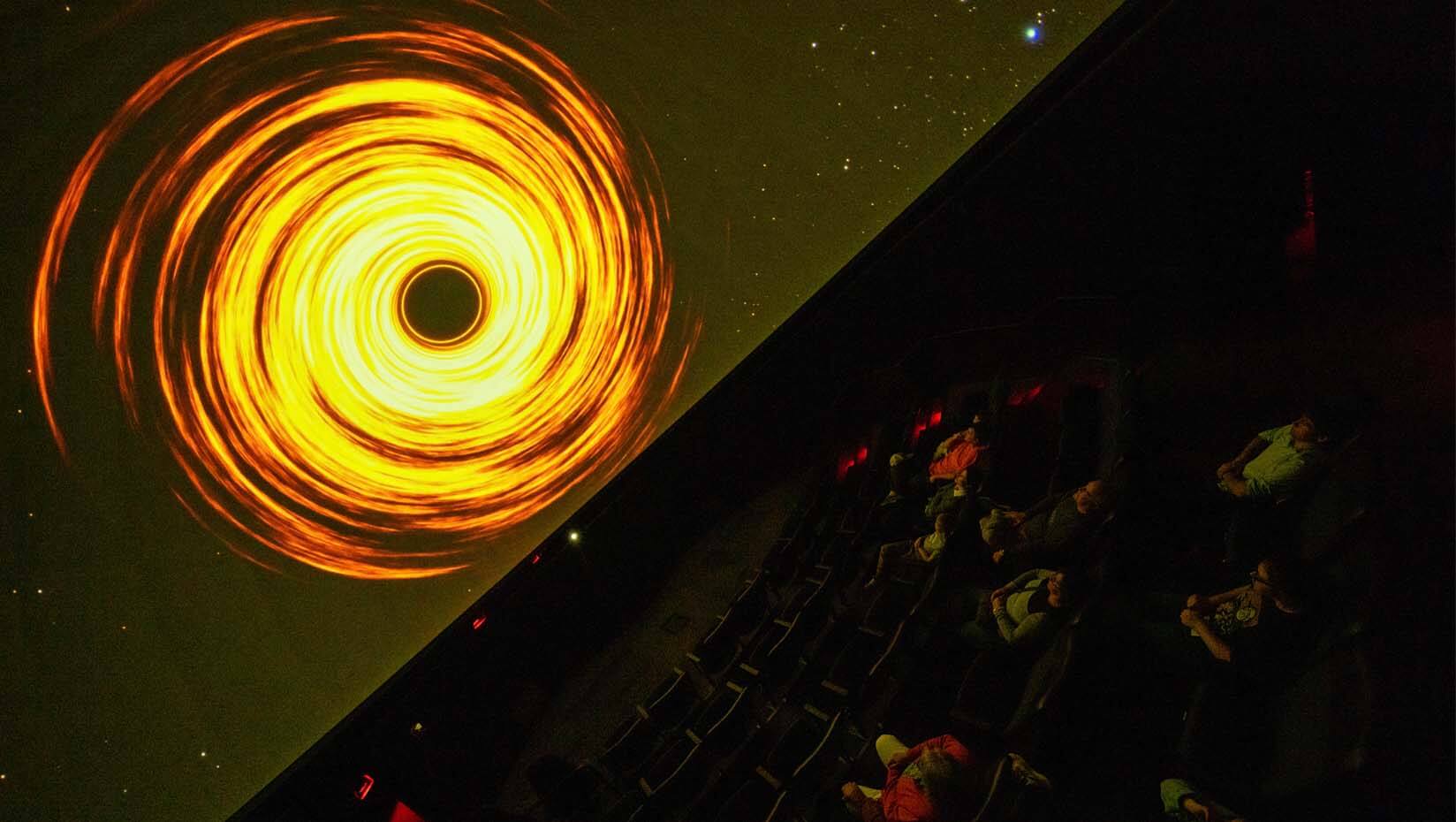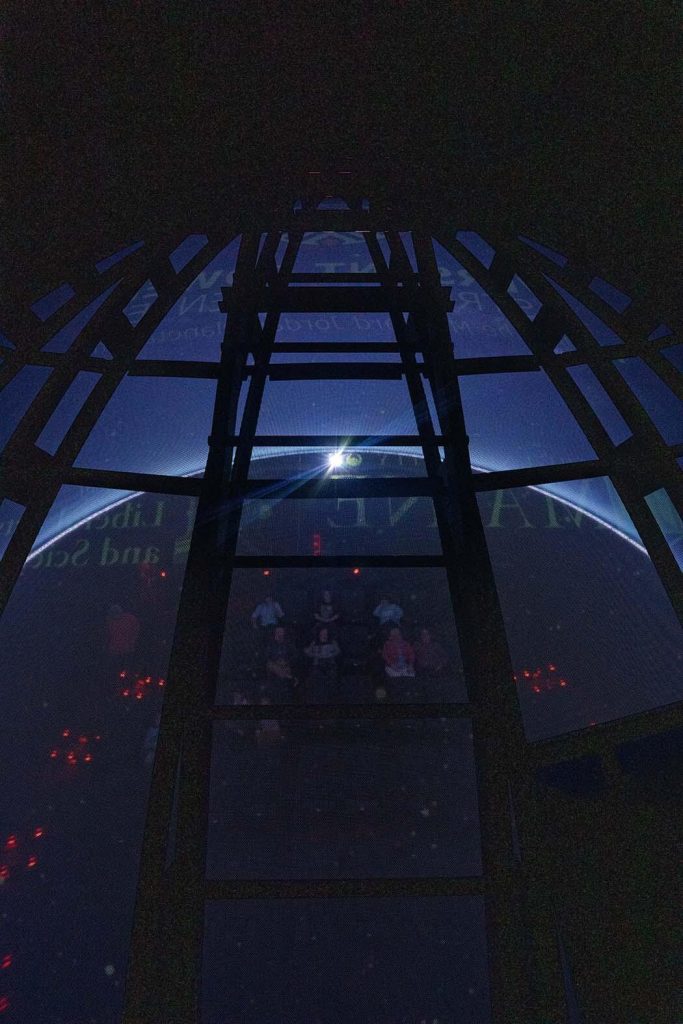
Marking 70th anniversary, astronomy center fundraising for latest world-class equipment to explore the universe
In 1954 — three years before the start of the “space race” between the U.S. and Soviet Union — the ninth university planetarium in the nation opened in Orono at the University of Maine. It was among the first 20 in the U.S.
Built by astronomy professor Maynard F. Jordan, it was a small facility on the second floor of Wingate Hall that only showed stars visible to the naked eye from Earth’s surface. That planetarium has since expanded into a 7,400-square-foot astronomy center and observatory. Its telescopes can now explore the vast solar system, and it houses equipment to simulate black holes, meteor showers and other cosmic wonders across a 33-foot-long dome.

The Versant Power Astronomy Center is kicking off its 70th anniversary with a capital campaign to raise $1.3 million for upgrades that will transform it into a cutting edge facility, the only one north of Boston with 8K technology. These enhancements will bring more immersive astronomical learning experiences to the center, enhance educational and entertainment content and better equip student workers for future careers in astronomy. Center Director Shawn Laatsch said the new technology will allow his team to offer more realistic projections of the starry night sky on the dome and feature more engaging programming.
“For decades, our astronomy center has played a pivotal role in enlightening Mainers on the forces of space and celestial bodies across our universe. Shawn and his students have inspired all of us to take a closer look at what lies beyond Earth’s atmosphere, particularly during the 2024 solar eclipse when they trained citizen scientists to gather crucial data and educated thousands of people on a once-in-a-lifetime experience,” said UMaine President Joan Ferrini-Mundy. “I encourage everyone to do what they can to support this capital campaign, which will help Shawn and his team bring us closer to the stars than ever before and inspire the next generation of scientists, engineers and leaders in Maine’s space economy.”
The new technology would allow climatologists, biologists, chemists and other scientists to visually showcase their research at the center, Laatsch said, supporting work emblematic of an institution with an R1 designation from the Carnegie Classification of Institutions of Higher Education. Additionally, the ability to project higher definition and more engaging visuals will elevate music and theatrical performances held at the center.
“A modern planetarium is an immersive visualization theater,” Laatsch said. “The technology would not only make all of our programming more immersive but also allow us to show programs made exclusively in 8K. We’ll be able to increase the number of shows available at the astronomy center.”

Having access to what Laatsch deems “the latest and greatest technology” will better equip undergraduate and graduate UMaine students employed with the center to train for careers in astronomy and other STEM areas. Former student employees have taken their astronomical knowledge and science communication skills to positions with planetariums post graduation.
“Working at the center has introduced me to a lot of resources that can be used for astronomy education. The fundraiser will give us access to more of those resources,” said Ph.D. student Nikita Saini. “We’ll be able to do better data visualization as well as learn how that is possible when we move to 8K. The funds will also be able to help upgrade a lobby exhibit that I’m working on getting built from scratch in collaboration with the VEMI Lab. It would add additional resources in our lobby to learn about astronomy.”
Funds are also intended to expand seating from 50 to 60 chairs, including four that are movable and six that are American Disabilities Act (ADA) compliant. Other prospective enhancements include new interactive exhibits in the lobby and digital signage.
Laatsch will discuss the capital campaign and the center’s history during a 70th anniversary presentation at 1 p.m. on Saturday, Nov. 2. Three public programs will also air that day: “SPARK: The Universe in Us” at 3:30 p.m.; “Worlds Beyond Earth” at 5 p.m.; and “Dark Side of the Moon: Pink Floyd” at 7:30 p.m. Donations to the campaign can be made on the University of Maine Foundation website.
“We’d like to stay a leader in this area,” Laatsch said.
Contact: Marcus Wolf, 207.581.3721; marcus.wolf@maine.edu
